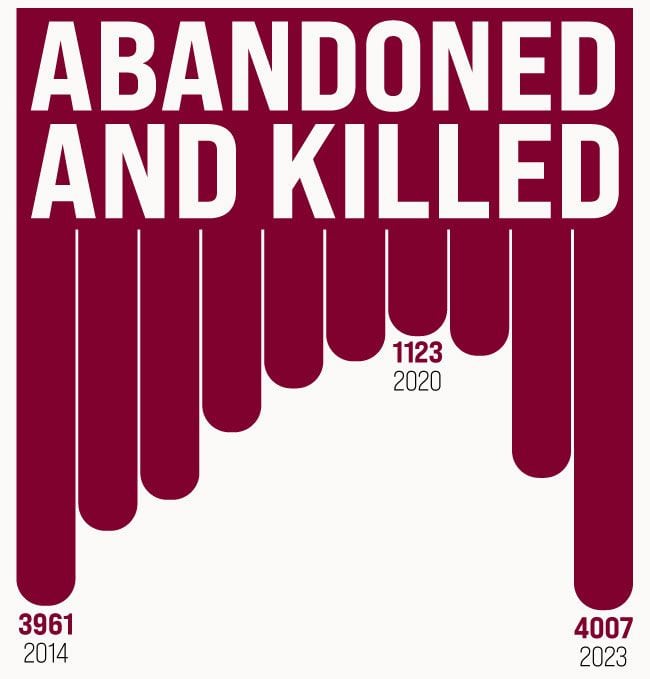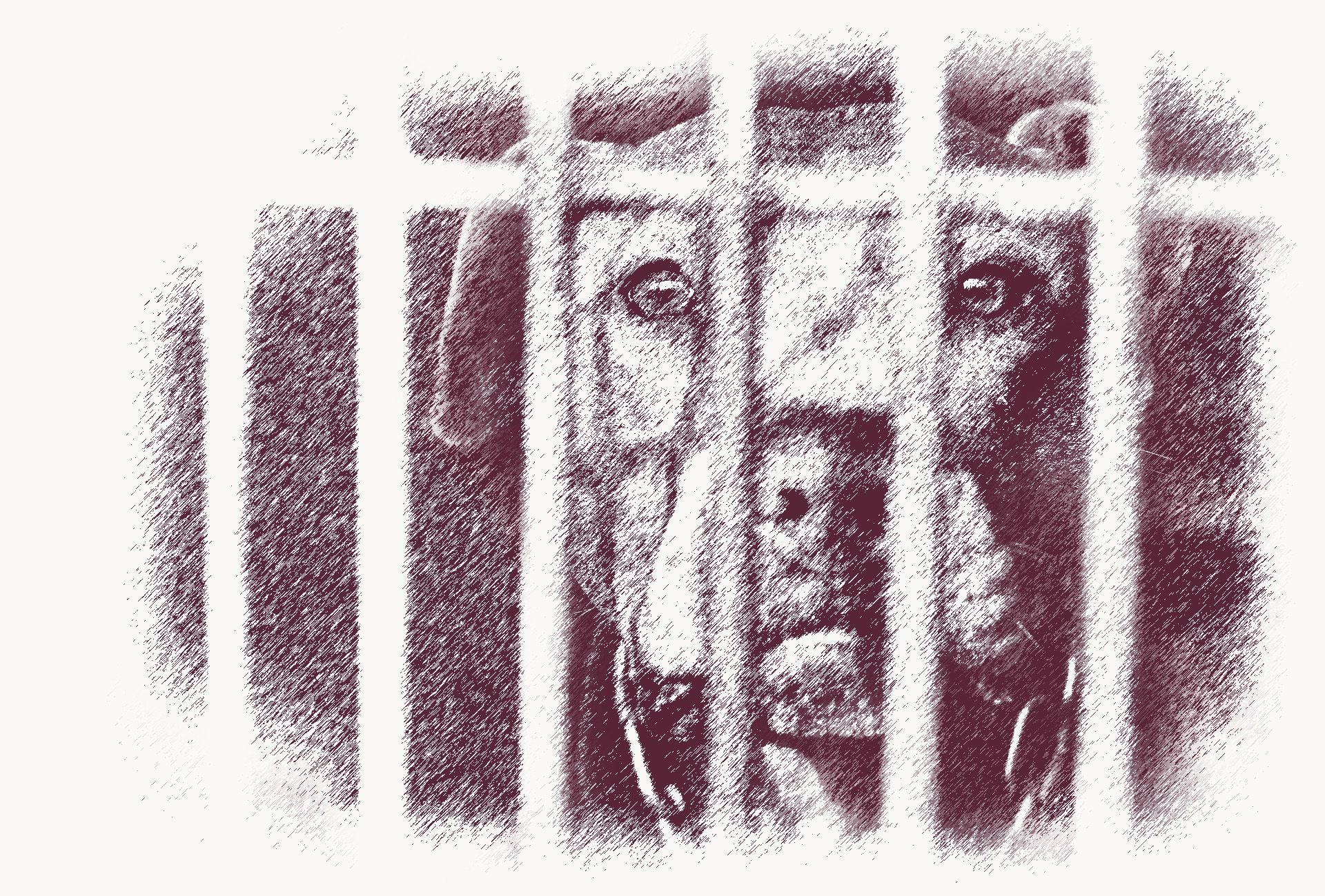
- More dogs are being put down than at any point in the past decade, with half of the 8306 pooches impounded last year never making it out alive.
- Dog attacks and roaming incidents in Auckland have risen dramatically in the past financial year with Staffies and Pit Bulls the most commonly locked up.
- More dogs are being abandoned at the pound.
Auckland Council is sounding the alarm as more dogs are being put down than at any time in the past decade.
Staff euthanised 4007 dogs in the 2023-24 financial year - an average of 11 a day.
The number is three-and-a-half times higher than three years earlier.
Half of the 8306 dogs that ended up in the pound last financial year did not live, according to the council’s latest Animal Management Report, out today.

Driving the numbers was a 26% year-on-year increase in total dogs locked up as council staff handled about 35,000 complaints and calls for help.
That included 15,000 complaints about roaming dogs - a 19% jump on a year earlier.
Dogs also reportedly made 1253 attacks on people and 1593 on animals, while the public made 80% more welfare-related complaints about abandoned or mistreated dogs than a year earlier.
“We’re seeing higher numbers of aggressive dogs out roaming the streets and putting the public, other animals and themselves at risk,” council animal management head Elly Waitoa said.
“Our plea to Aucklanders is that if you are thinking of getting a dog, please carefully consider whether you are ready for this responsibility.”
It has left Auckland’s shelters beyond capacity as they spent most of the past year holding more dogs than they were designed to accommodate.
Of pooches impounded, most were picked up after being caught roaming (1561).
Almost 600 were locked up for attacking a person or animal, and 392 were voluntarily surrendered by their owners.
Other reasons for time behind bars included concerns about their welfare (312), not being registered (286) and rushing or aggressive behaviour (107).
Once locked up, 48% of dogs were put down.
Dogs were killed because, among other reasons, they failed temperament tests (1997), the shelter was full (985), they had health issues (256) or they were involved in an attack (227), the council said.
Thirty-seven dependent pups also had to be put down.
The results interrupt the past decade’s trend in which the numbers of euthanised dogs had been falling.
One of the most frustrating reasons for the jump in euthanised dogs is the fact more owners are abandoning their animals at the pound and refusing to collect them, council staff said.
Forty-three per cent of locked-up dogs were returned to owners - the lowest percentage of returnees in the past decade.
The Herald understands that was despite staff making repeated calls to some owners and even, in some cases, dropping dogs off to owners.
Council’s Waitoa said many people were struggling to look after their dogs properly.
“What we have seen over the past year is that fewer Aucklanders are getting their dogs desexed or registered, they’re not socialising them properly and not keeping them contained to their properties.”
In an opinion piece published in the Herald earlier this year, council’s then-director of regulatory services, Craig Hobbs, said he was “sick” of abuse being levelled at his Animal Management staff.
They can suffer abuse almost daily, through “nasty” social media comments, death threats and “alarmingly” physical assaults out in the field, he said.
However, the rangers and shelter workers were some of council’s most “hardworking and passionate” people, working to keep Aucklanders safe.
Putting dogs down was the hardest part of the job, he said.
“Believe me when I say that supporting vets to carry out euthanisations in our shelters is the last thing our staff want to be doing,” he said at the time.
Hobbs also said that with shelters and animal rescue organisations at capacity, the council had undertaken several outreach and education programmes to work with dog owners.
Yet ultimately the blame rested with owners, he said.
It is not his people leaving dogs to roam the streets and attack people and children, he said in his opinion piece.
Nor is it his staff failing to train puppies and leaving them tied up all day, nor is it his staff failing to desex dogs and then dumping unwanted litters, he said.
“And yet, it is often our people who are left picking up the pieces.”
Take your Radio, Podcasts and Music with you










